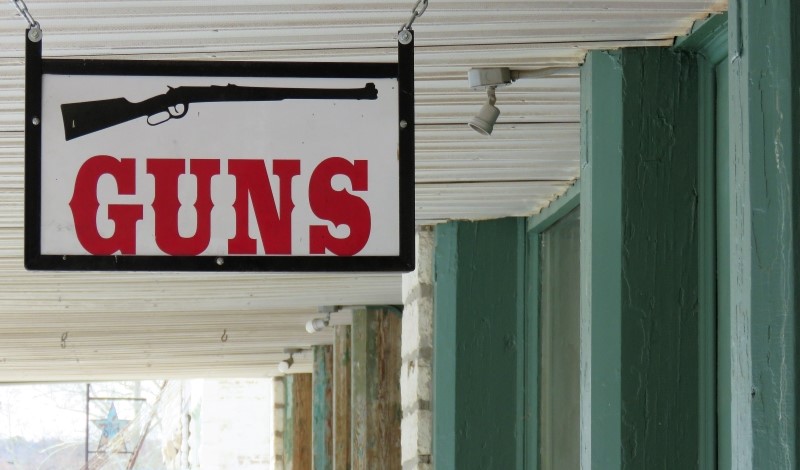
The Court condemned regulator pressure to cut ties with the gun industry to mitigate financial risk.
In May, the Supreme Court issued a unanimous opinion in National Rifle Association v. Vullo, siding with the National Rifle Association (NRA). The Court reversed the U.S. Court of Appeals for the Second Circuit, which had ordered a dismissal of the claim, and it remanded the case, so the lawsuit can now proceed to trial. The procedural posture of the case—an appeal from a dismissal—was important, because the Court assumed the truth of the NRA’s factual allegations asserted in its complaint, which the association will now have to support with evidence at trial.
Justice Sonia Sotomayor wrote for the Court, and Justices Neil Gorsuch and Ketanji Brown Jackson each wrote separate concurrences. In a nutshell, the NRA claims that Vullo, while a government official, used her position to coerce private companies to sever business ties with the NRA because she disagreed with the NRA’s public advocacy for gun rights. (I joined an amicus brief with other law professors in the case, in support of Vullo.)
One counterintuitive aspect of this First Amendment case is that the plaintiffs were, in fact, violating state insurance laws, and the defendant was responsible for enforcing those laws. It is an everyday occurrence for state bureaucrats to caution regulated industries under their purview against involvement with illegal activities that have recently come to light in their industry, or to avoid partnering with any industry players operating outside the law. But the strong feelings Americans have about guns, whether for and against, complicated what would have otherwise been a mundane regulatory action.
In 2017, the NRA launched an insurance program for its members called Carry Guard, which offered to provide purchasers with coverage of a wide range of legal and personal costs if they found themselves in court due to using a firearm in self-defense. Groups advocating for stricter gun laws called the program “murder insurance,” especially when viewed in the context of newer “stand your ground” laws. One or more of these groups alerted a New York County district attorney’s office that some aspects of the NRA’s program were unlawful, and the complaint was forwarded to the New York Department of Financial Services (DFS), which regulates insurers and other financial service providers that operate in that state. Maria Vullo was the Superintendent of DFS at the time, and her office opened an investigation into the program. The investigation involved the NRA and three insurance underwriters (Chubb, Lockton, and Lloyd’s). The investigation found violations of state law—among other things, the program arguably insured intentional criminal acts, and the NRA was marketing the insurance program without obtaining a required state license to do so. Within weeks, the insurers suspended the program in response to the investigation, and the DFS investigation began scrutinizing other NRA insurance programs, which involved similar violations. Eventually, the NRA and the three financial companies involved each paid millions of dollars in fines over these violations.
While the investigation was still ongoing, however, there was a horrific shooting rampage in a high school in Parkland, Florida in February 2018. A public outcry erupted over this mass shooting and the NRA’s central role in promoting weapons proliferation in the United States. Several large corporations around the country cut ties with the NRA, either due to public pressure—threats of consumer boycotts were already starting—or the convictions of the corporate leadership. Political leaders, including then New York Governor Andrew Cuomo, made immensely critical public statements about the weapons industry and the NRA.
Vullo, as Superintendent of DFS, then held a series of meetings with Lloyd’s about a number of state regulatory violations by the company, some unrelated to the NRA. One of these meetings took place just two weeks after the Parkland massacre, and Vullo apparently expressed her strong feelings about gun control and her desire to see financial institutions stop bankrolling arms proliferation in the United States, as well as the NRA’s advocacy of arms proliferation. Although the parties dispute what exactly was said at this meeting, the Court accepted the NRA’s version of the conversation. The NRA was not present for this private meeting between Vullo and the Lloyd’s attorneys, but it claims that Vullo said she would focus on Lloyd’s violations related to the NRA, and that she could give them a pass on other violations if they would completely sever ties with the weapons industry and gun advocacy groups. Lloyd’s agreed to this as a negotiated settlement agreement, and it cut ties off with the NRA.
Two months later, Vullo issued two DFS guidance letters to insurance companies and other financial institutions operating in her state, decrying the alarming incidents of gun violence in our society. She urged the industry to consider the public backlash against the NRA and similar groups, and to review their internal risk assessments (including reputational risk) of partnering with pro-gun groups. The guidance letters noted that other businesses had severed ties with the NRA after the Parkland shooting, “fulfilling their corporate social responsibility.” The letters contained no express threats of enforcement actions or penalties, but they were clear about what Vullo thought companies ought to do. Vullo and Governor Cuomo issued a joint press release reiterating most of these points, with a bit more rhetorical flourish. The next day, Governor Cuomo (but not Vullo) called the NRA an “extremist organization” on X, the social media platform formerly known as Twitter. Settlement decrees with Chubb, Lockton, and Lloyd’s followed, with each paying hefty fines for their involvement with the NRA’s scheme and agreeing to stop working with the NRA. The NRA eventually sued Vullo, DFS, and Cuomo, saying that were punishing the NRA to suppress its “core political speech” and “pro-Second Amendment viewpoint.” The defendants filed motions to dismiss, which the district court denied. The U.S. Court of Appeals for the Second Circuit reversed this denial and ordered dismissal of the case, finding that none of the alleged actions, on their own, were clearly inappropriate or unlawful.
The Supreme Court reversed again, based on the standard set forth in Bantam Books, Inc. v. Sullivan, a case about obscenity and censorship laws, and the line of cases following that decision. A few years ago, that case might have seemed to involve rather quaint facts from a bygone era—police telling bookstores to stop selling dirty books—but these facts seem more relevant now in light of current efforts to force libraries to remove children’s books that some people find objectionable.
In its opinion in Vullo, the Court repeatedly mentioned that it found a First Amendment violation by taking all the events described above together. The closed-door meeting with Lloyd’s provided necessary “context” for the subsequent guidance letters, the Court said, showing that the industry would reasonably have taken the letters as a threat, and therefore coercive. This seems a little confusing, because no one besides Lloyd’s and DFS would have known about that closed-door meeting, but the Court made a connection.
Interestingly, the Court omitted any mention of the fact that a New York jury found the NRA leadership guilty of widespread fraud and self-enrichment in late February of this year, which would seem to be relevant to a financial regulator warning an industry to steer clear of bad actors. Although the fraud case started months after Vullo’s alleged coercion occurred, rumors about financial shenanigans at the NRA were already in wide circulation in 2018, and New York Attorney General Letitia James launched her financial fraud investigation a few months after Vullo’s handling of the insurance matter. The Court did note that Vullo could still present a qualified immunity defense at trial—a defense which the Court did not consider, even though the Second Circuit relied on that as an alternative basis for its dismissal.
This essay is part of a series, titled The Supreme Court’s 2023-2024 Regulatory Term.




